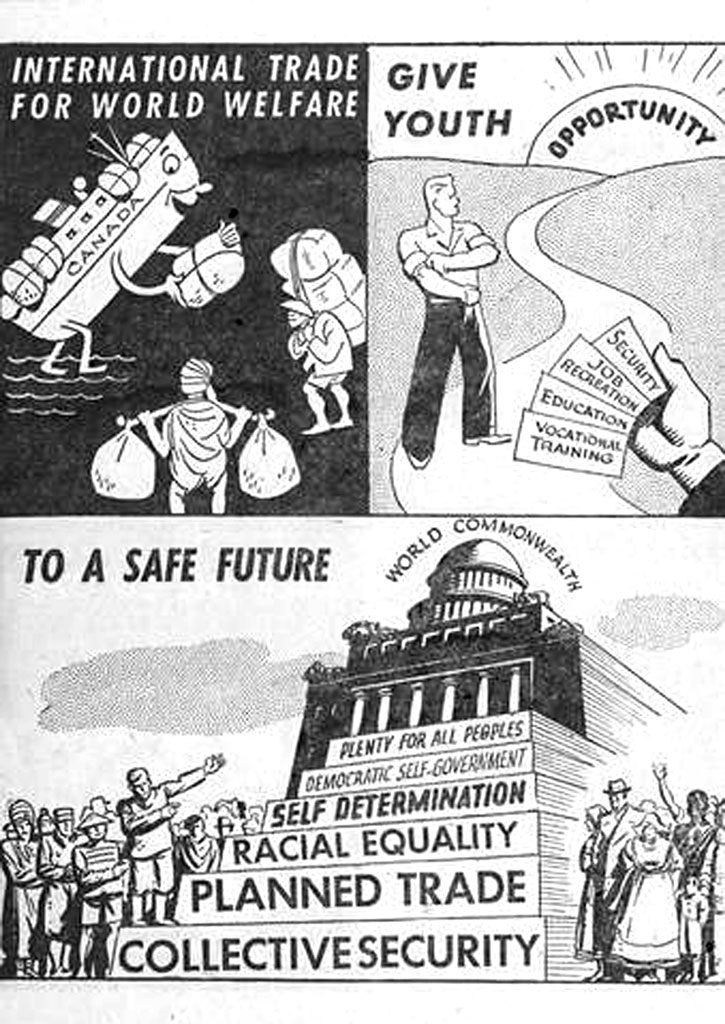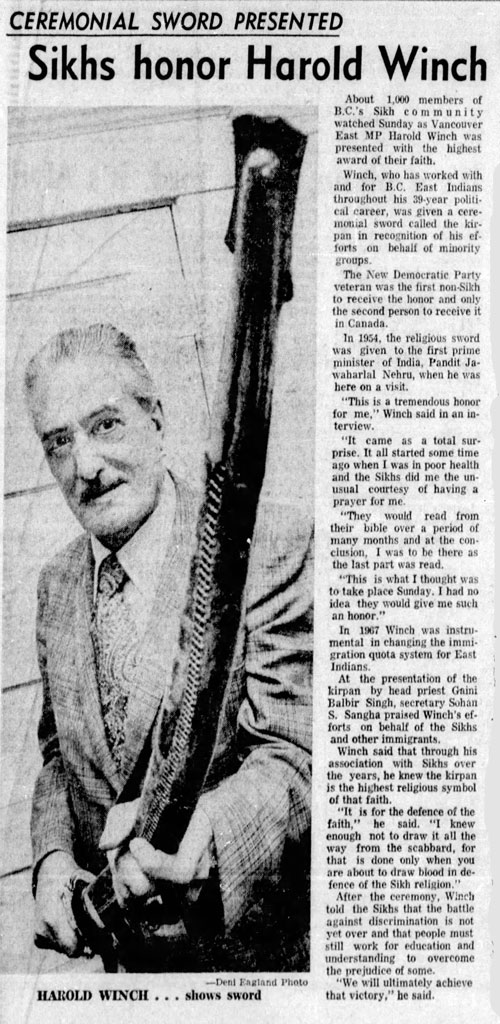

For many decades, the ‘Asiatic question’ was the most divisive and persistent obstacle to working-class unity in BC. Racism, complicated by the low wages, long hours and substandard living conditions for [South Asian], Chinese and Japanese workers, created a deep divisions.[1]
When the Co-operative Commonwealth Federation (CCF) was founded in Calgary in 1932, it included the Socialist Party and other progressive and labour groups. The CCF had strong principles. In the House of Commons, and in the BC legislature, CCF representatives bucked racism of the day to argue Asian-Canadians should be given the right to vote. During the Second World War, the CCF defended the rights of Japanese-Canadians, when others called for them to be placed in internment camps and deported after the war.[2]
In a formal alliance with organized labour in 1961, the CCF evolved into the New Democratic Party. Both parties embraced equality of races.
The New Democratic Party (NDP) founding constitution in 1961 enshrined the inclusion of all races in the party’s membership. Its political program called for a Canadian Bill of Rights as part of the country’s constitution.
The International Woodworkers of America (IWA), which became the predominant union in the forest industry in BC, were formally affiliated to the NDP in BC. As the Party grew, so too did its South Asian membership, many of whom ultimately took political office with the NDP and on the provincial stage.
- Benjamin Isitt, (2003). The Search for Solidarity: The Industrial and Political Roots of the Cooperative Commonwealth Federation in British Columbia, 1913-1928, Thesis, University of Victoria, 2003, 126. ↵
- John Mackie, "Vancouver South MP Angus MacInnis and Grace Woodsworth began the most storied marriage in the history of Canadian socialism". The Vancouver Sun, January 11, 2014, 2. ↵
